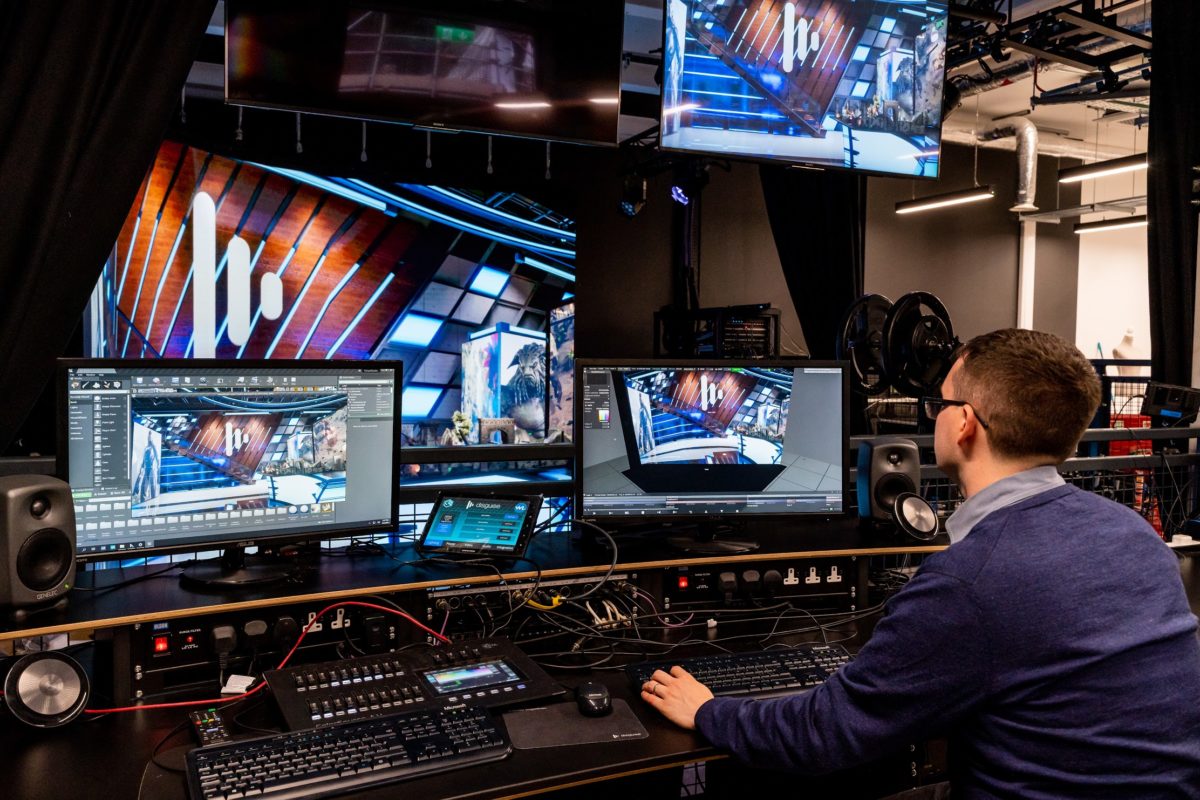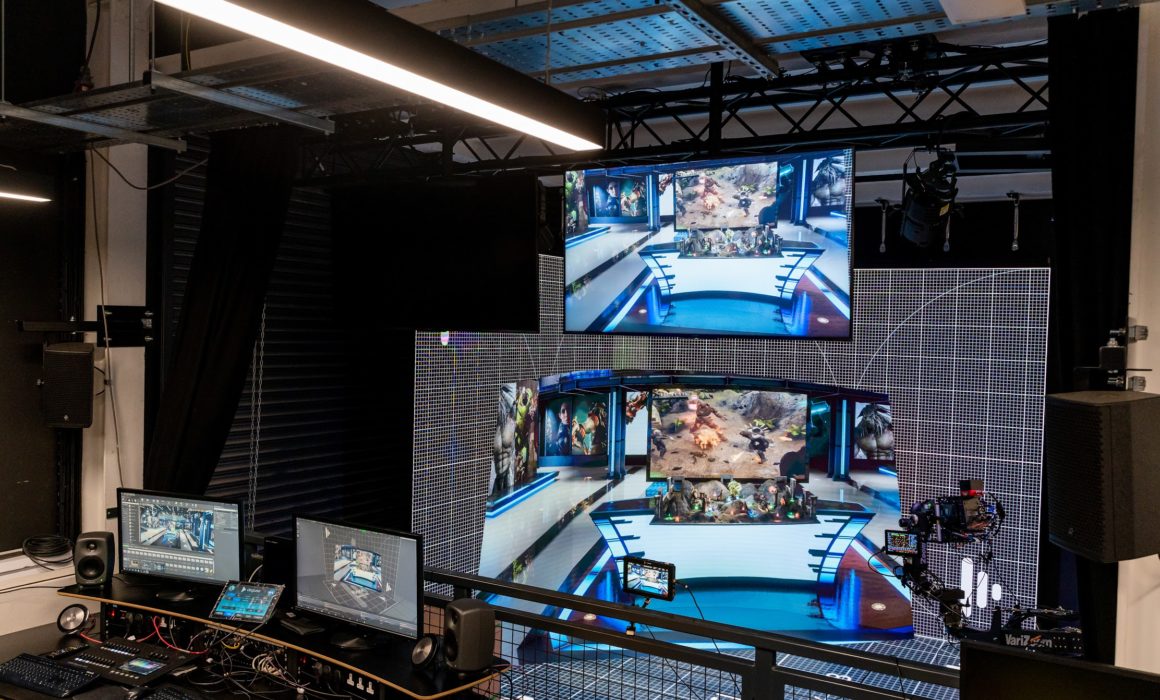Technology for Hybrid Events: disguise on the Future of Visual Experience
With events going digital, technology has become even more so indispensable. We have been using disguise’s XR workflows within our hybrid event productions. So the opportunity to speak to Peter Kirkup, Global Technical Solutions Manager at disguise, about their vision for the future of events, was particularly relevant to us and our quest to develop new engaging formats.
Peter heads a team that is responsible for technical pre-sales. He manages the demo setup for customers. Therefore, Peter does not only have a good understanding of the newest technological features on the market, but also of the creatives‘ and end customers‘ needs. The conversation was especially interesting in terms of gaining a greater understanding of what digital elements enhance the immersive dimension of an event.
battleROYAL: Let’s start big: What do visual experiences have to look and feel like for the end customer to be satisfied in the future?
Peter: I think there’s a very interesting trend happening, or accelerating at the moment, which is that audiences’ expectations are ramping up massively in terms of technical competency. Previously, people would be quite accepting of a weather forecast on TV where you would see the presenter standing in front of an obvious green screen, and waving their hand approximately in the right place. Whereas now, the references are the weather channel with a huge immersive piece. The generic audience is expecting high level visual production everyday. And it’s not just weather, it’s sports, broadcasting, it is esports, it’s product launches… You know If you look at the latest Apple product launches, it’s all seamless fly-throughs, in beautifully rendered 3D environments.

© disguise
battleROYAL: What does that imply for your work?
Peter: What we found is that the pressure to keep innovating and to keep releasing new features and keep pace is hotter than ever. The threshold has been set so high. But at the same time, the world that we’re in now, budgets are tighter, and the timescales are absolutely minimized. We have clients who set up acts on stages that are being used for a sports broadcast to a major broadcaster in the morning and then, 10 minutes later, a quiz show. One only needs to „change a set“ digitally, rather than having to physically move pieces around. A so called „multipurpose environment“.
battleROAL: Are there certain, more concrete trends in terms of features that the end consumer expects?
Peter: I think the general thing is more emotion. As an audience, when you attend an event you tend to inhabit a reality that is mundane: you’re going to an event, you’re going to work, or to watch a conference. And it’s the job of the creatives to bring out the other emotions that they want with that event. And by extending that emotion in that space beyond the stage and into the full experience, the viewer becomes immersed. That actually is what leads to a successful event and „higher engagement“ or whatever metric you’re chasing.
But people also come with quite a high guard. And it’s your job as a creative to bring that guard down so you can get your message in.
So „emotion“ can mean putting more video displays into a setting. Or, if it’s a corporate product launch, having 270 degree projection, instead of just a flat screen at the front of the room. It can mean a museum where they’re actually adding interactions to the exhibit so that people can come in and not just experience it, but also influence it in some way.

© disguise
battleROYAL: And are there new features that you feel like are very exciting in some way?
Peter: See, I think the key thing at the moment that people are looking for is creative flexibility. And people have their own workflows, they have their own way of creating a show. It’s not our job as a manufacturer to tell you how to create a show, it’s our job to provide the tools that enable you to do that.
battleROYAL: But is there a specific feature that creatives wouldn’t know about?
Peter: One of the key things is our pixel level simulation. We use an example in one of our training courses where we have a ball dropping from the top to the bottom of a skyscraper in a projection map. And the person responsible for content creation says: „I want it to be in five seconds because that’s what I think will look good“. But actually, when you drop it, it looks ridiculous because as humans, we understand the power of gravity. Understanding scale helps you get all of that right. So when you’re using the disguise software, if you have a VR headset, you just plug it in, and you can sit in VR, and you can see your content. In true scale and pixelation.
battleROYAL: Finally we’d like to hear: can virtual reality experiences even replace or offer the same thing as live experiences?
Peter: For us, VR technology itself, the goggles, and the space that you put yourself into, is not a shared experience, it’s very much an isolated experience. I don’t think it’s really good at creating shows, I think shows are much better done as a shared experience, because they’re down to biological things: when you’re in a shared space your heart rate will sync with everyone else in the room and things like that. But that doesn’t happen in a VR experience. Because you’re on your own, you’re being isolated. It’s not the right tool for that.


